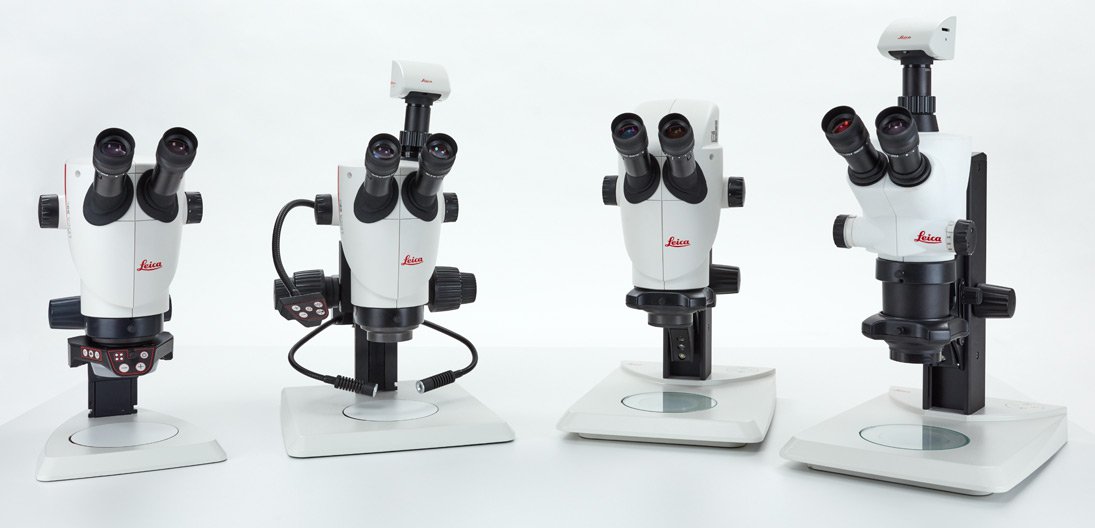Leica S-series
Continuously improving production, keeping defect rates low, and fulfilling customer requests in order to stay competitive can be very challenging. Leica has developed the S9 stereo microscope series to help you cope with these challenges.
With this new generation of Greenough stereo microscopes operators will be able to reveal details faster as they spend less time having to adjust the microscope.
Easy sample manipulation with maximum working distance
Sample inspection and manipulation under the microscope can be conveniently performed with the 122 mm working distance of all S9 stereo microscopes.
Enjoy working with more space for your tools under the microscope lense – sometimes every mm counts.
Optimize optical inspections
Available in different versions for diverse needs the S9 stereo microscopes boost efficiency and optimize optical inspections in your production line or Quality Control division, due to:
- FusionOptics technology with 12 mm depth of field to find details fast
- High magnification up to 55x and 9:1 zoom for quick changes from overview to details
- 122 mm working distance for easy sample manipulations under the microscope
- Integrated, network-camera for easy image sharing
Find details faster with 3x more depth of field
Move the slider and see for yourself how FusionOptics combines larger depth of field with maximum resolution to deliver an amazingly sharp yet highly detailed image, that is impossible to see with other standard stereo microscopes.
With 3x larger depth of field, microscope operators can save time refocusing as they now see every important detail at a glance.
(Note: Image simulation, showing a printed circuit board sample without and with the FusionOptics effect, perceived when looking through the oculars.)
Quick magnification change
Operators can effortlessly switch from overview to detail with the uniquely high 9:1 zoom, speeding up inspection and manipulation.
Apo corrected zoom optics with 55x magnification reveal new details in your sample.
With fewer adjustments of zoom or focus, operators’ concentration on the sample is higher, as they face less interruptions. Throughput will increase naturally.


